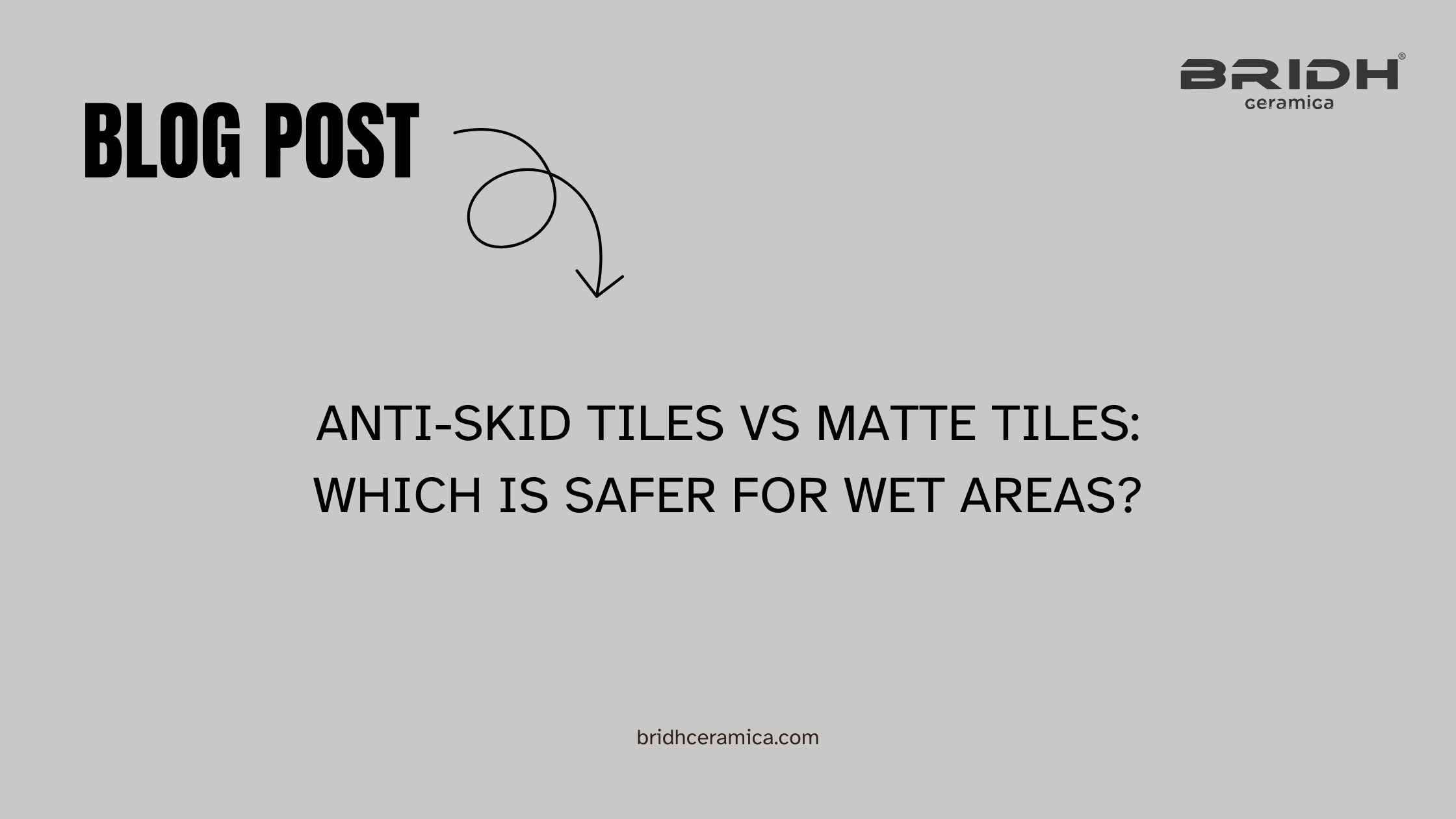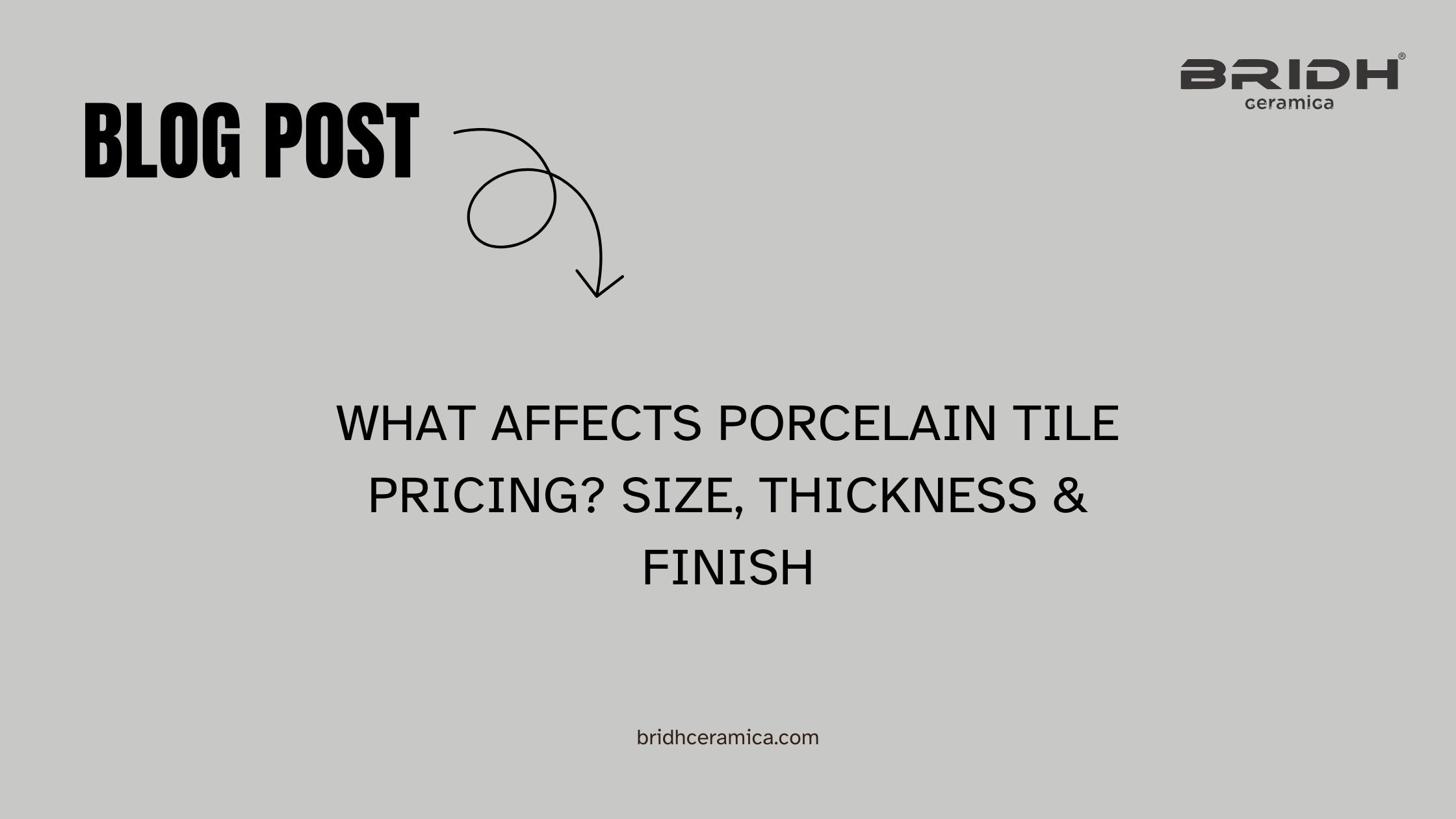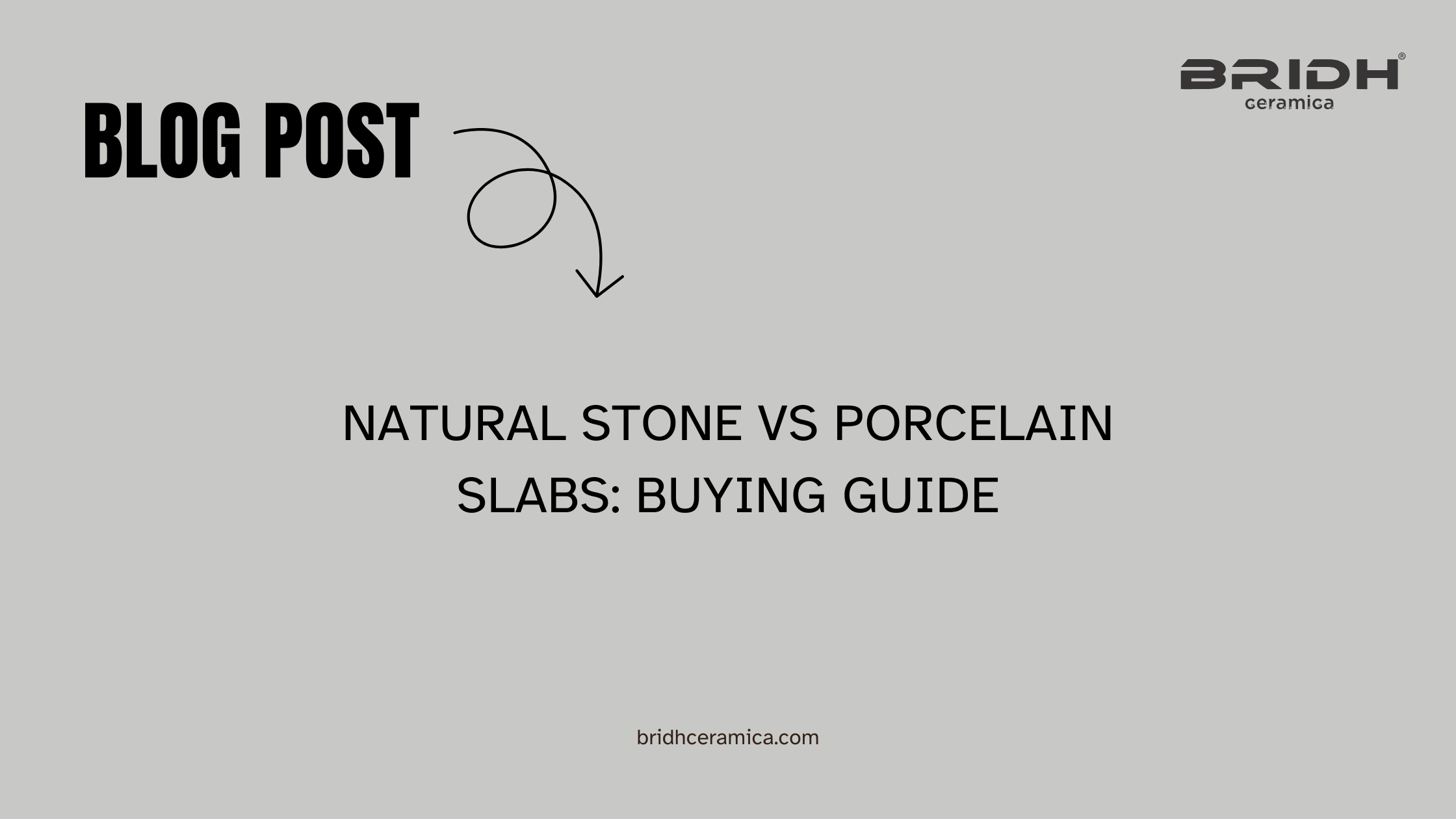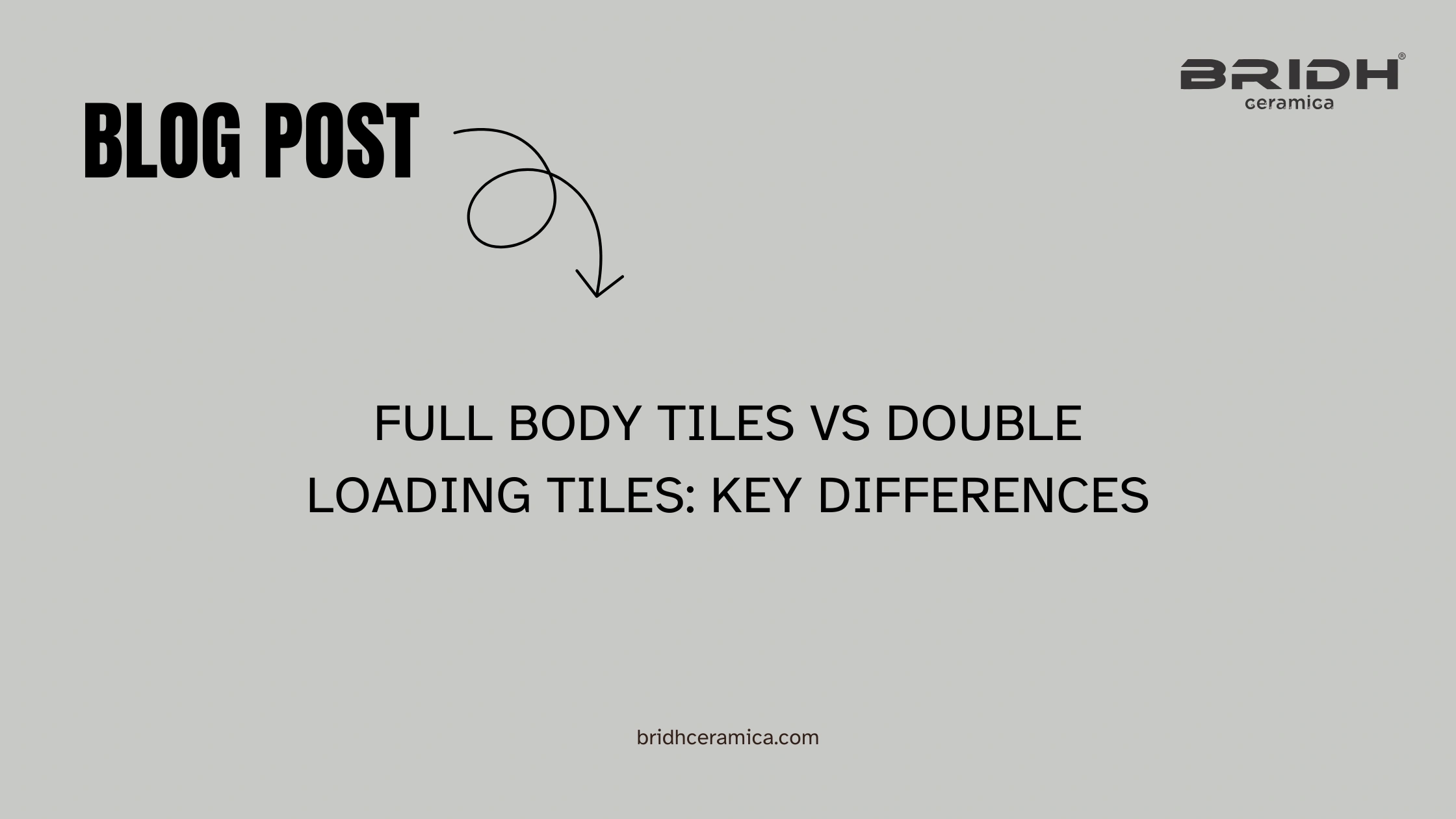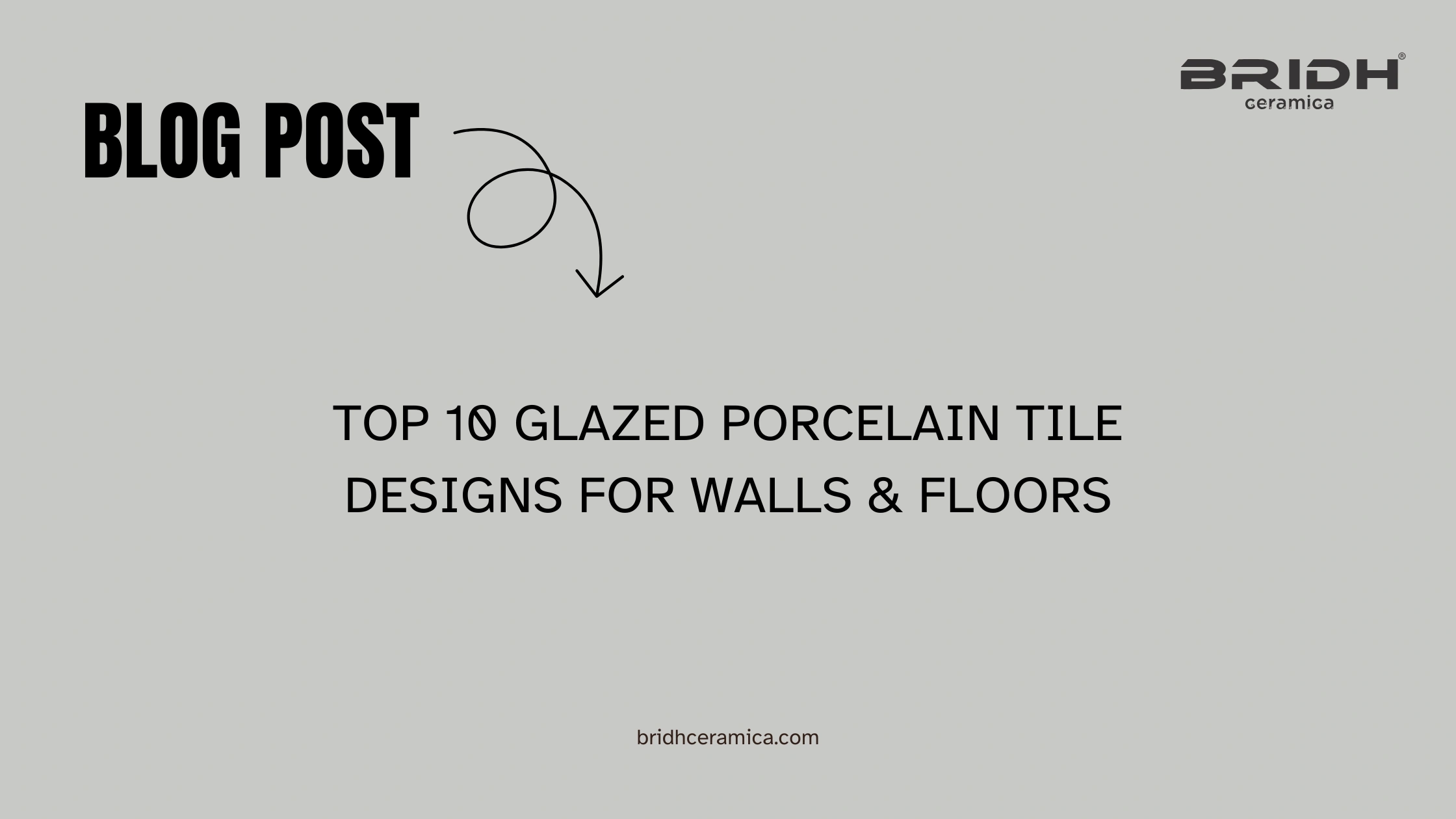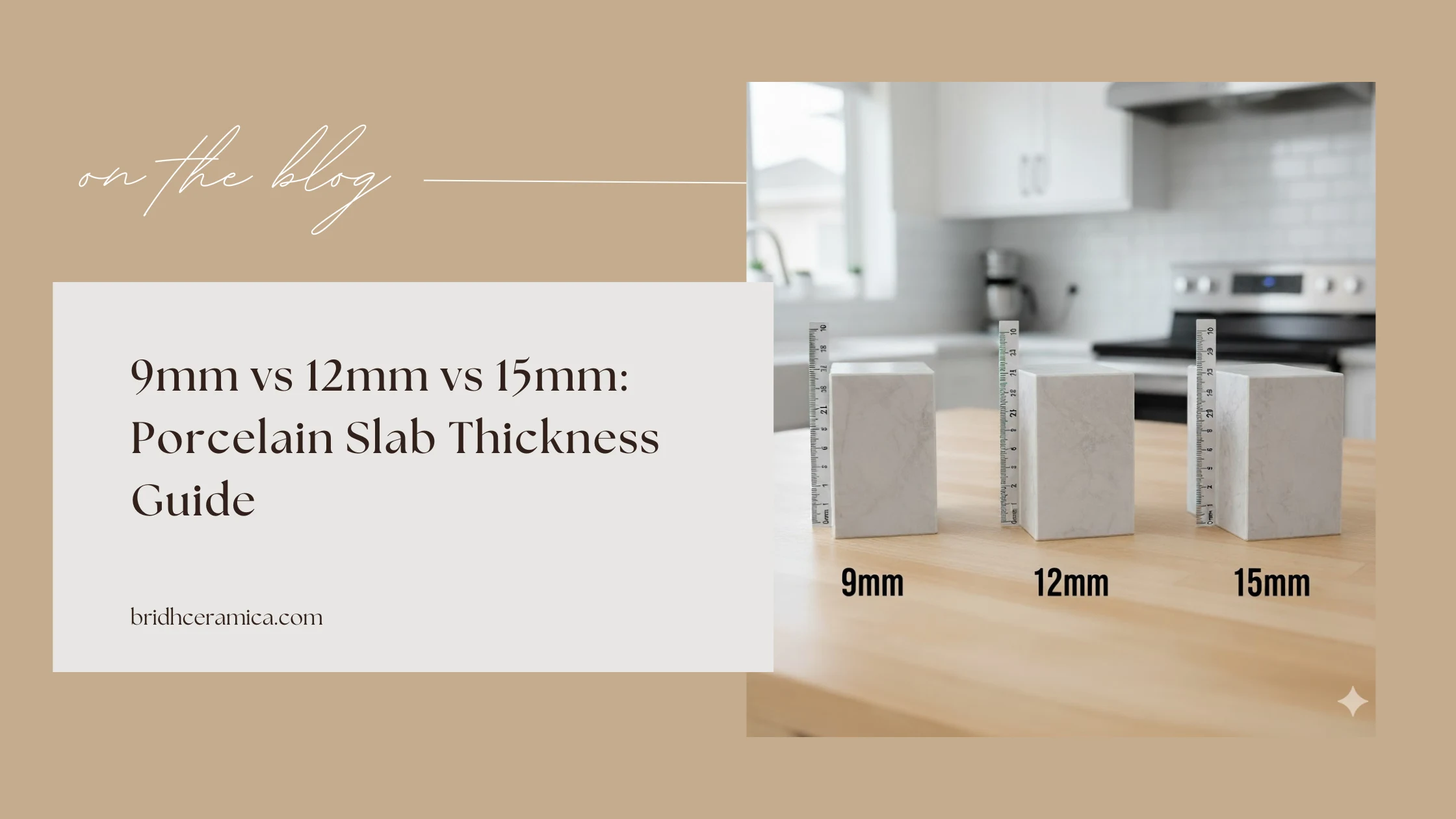Anti-Skid Tiles vs Matte Tiles: Which Is Safer for Wet Areas?
Feb 04, 2026Connect With Our Team
Introduction
Choosing the right porcelain slab thickness is crucial for both the performance and aesthetics of your project. The thickness of a slab affects durability, installation methods, weight, and overall cost. Common thickness options 9mm, 12mm, and 15mm each offer unique advantages and ideal applications. In this guide, we’ll help you understand the differences and choose the perfect thickness for your needs.
Understanding Porcelain Slab Thickness
Porcelain slab thickness is determined by several factors:
-
Manufacturing process: Slabs are typically made using high-pressure pressing and high-temperature firing. The precision of these processes determines uniformity and strength.
-
Intended use: Thinner slabs are often for wall cladding, while thicker slabs are designed for flooring or countertops that require durability.
-
Support requirements: Thicker slabs can handle heavy loads without additional reinforcement, while thinner options may need substrates or support frameworks.
9mm Porcelain Slabs: Features and Applications
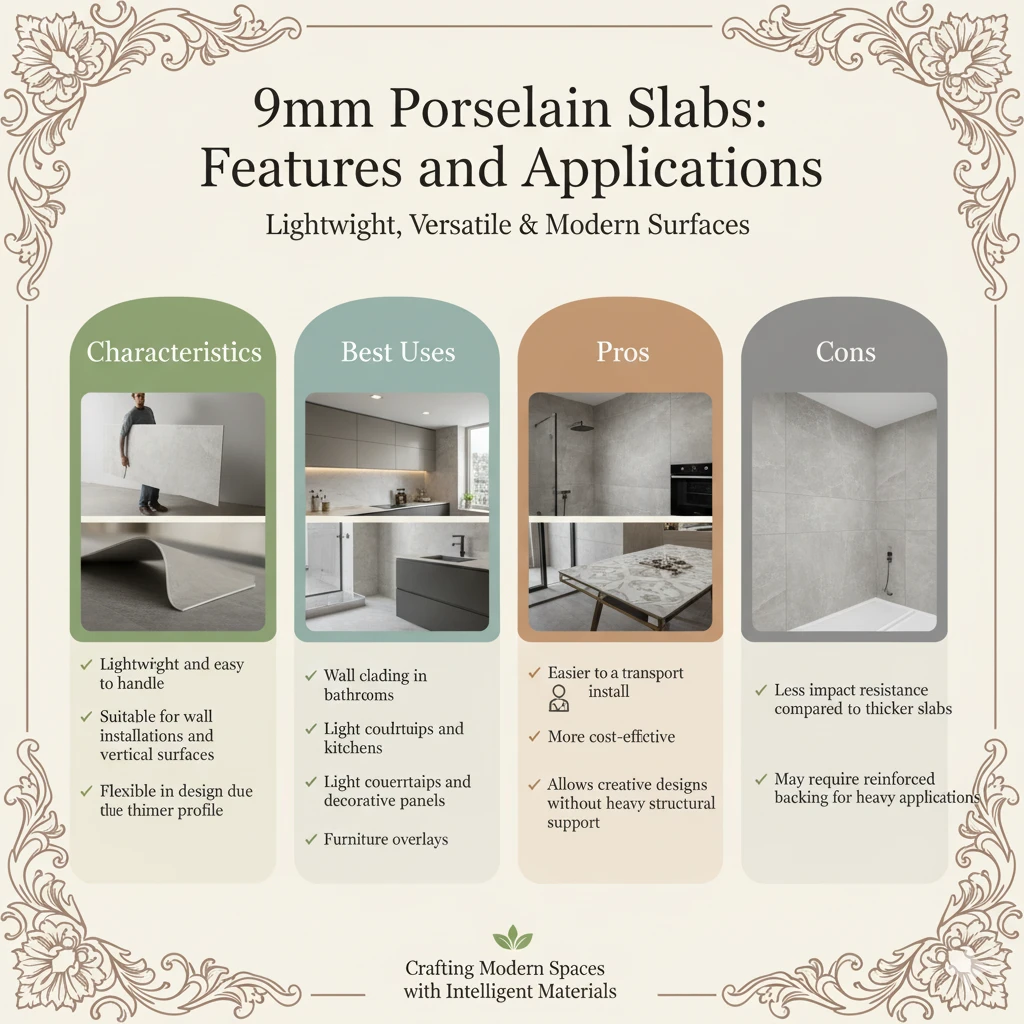
Characteristics:
-
Lightweight and easy to handle
-
Suitable for wall installations and vertical surfaces
-
Flexible in design due to thinner profile
Best Uses:
-
Wall cladding in bathrooms and kitchens
-
Light countertops and decorative panels
-
Furniture overlays
Pros:
-
Easier to transport and install
-
More cost-effective
-
Allows creative designs without heavy structural support
Cons:
-
Less impact resistance compared to thicker slabs
-
May require reinforced backing for heavy applications
12mm Porcelain Slabs: The Versatile Middle Ground
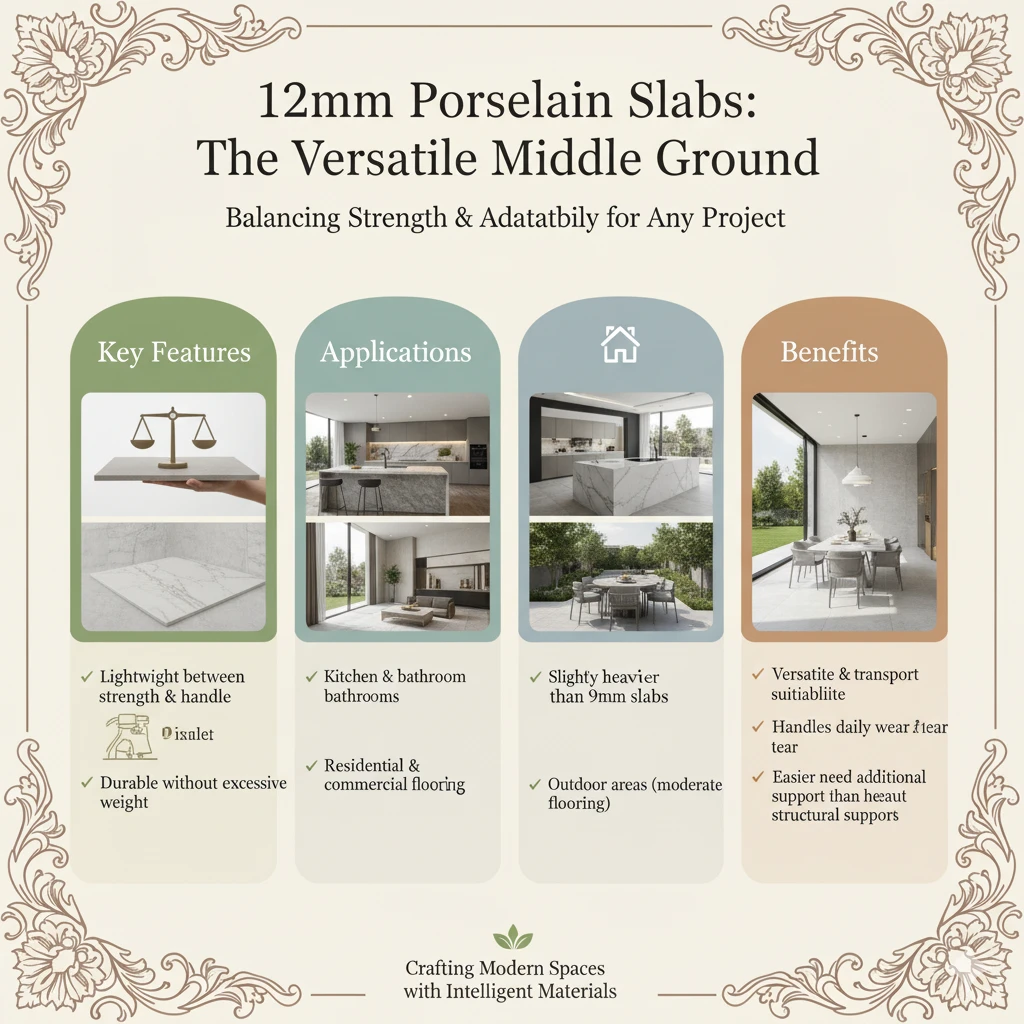
Key Features:
-
Offers a balance between strength and weight
-
Can be used for walls, floors, and countertops
-
Moderate thickness ensures durability without excessive weight
Applications:
-
Residential and commercial flooring
-
Kitchen and bathroom countertops
-
Outdoor areas with moderate foot traffic
Benefits:
-
Versatile and suitable for multiple projects
-
Handles daily wear and tear effectively
-
Easier to cut and customize than 15mm slabs
Limitations:
-
Slightly heavier than 9mm slabs
-
May need additional support for larger spans
15mm Porcelain Slabs: Maximum Strength
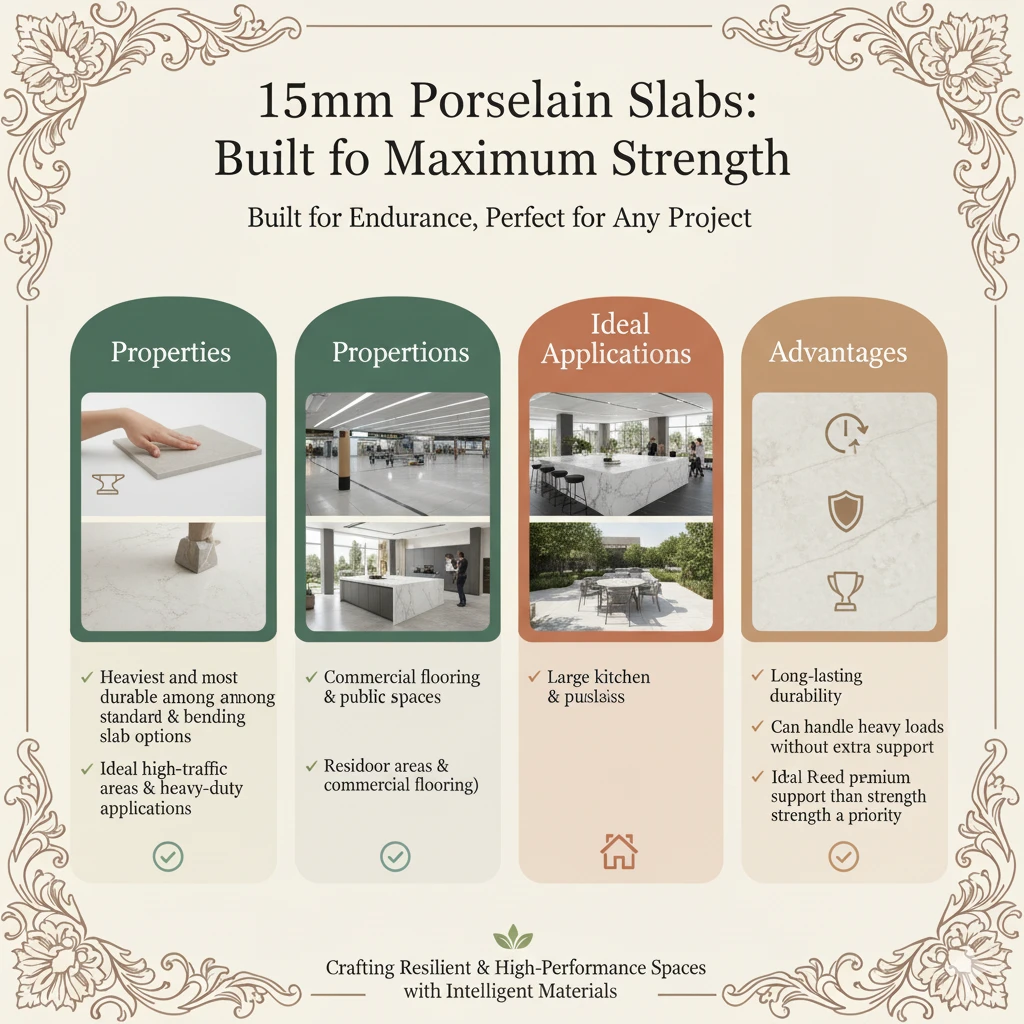
Properties:
-
Heaviest and most durable among standard slab options
-
High resistance to impact, scratches, and bending
-
Ideal for high-traffic areas and heavy-duty applications
Ideal Applications:
-
Commercial flooring and public spaces
-
Large kitchen countertops and islands
-
Outdoor paving and terraces
Advantages:
-
Long-lasting durability
-
Can handle heavy loads without extra support
-
Ideal for premium installations where strength is a priority
Which Thickness Is Right for Your Project?
Countertops: 12mm or 15mm slabs are preferable for strength and durability, with 15mm being ideal for large spans.
Wall Applications: 9mm slabs are lightweight and perfect for vertical surfaces.
Flooring: 12mm slabs offer a balance of durability and installation ease, while 15mm is suitable for high-traffic areas.
Outdoor Use: 15mm slabs are preferred due to weather resistance and structural integrity.
How to Choose the Right Thickness for Your Project?
-
Budget considerations: Thinner slabs are more affordable, while thicker slabs are a premium investment.
-
Installation requirements: Thicker slabs may need specialized tools and professional installers.
-
Structural support: Ensure your surface can handle the weight, especially for 15mm slabs.
-
Design aesthetic: Thicker slabs convey luxury, while thinner slabs suit sleek, minimalist designs.
-
Application Type: Walls, light-use countertops, and partitions can use 9mm slabs. Floors, moderate traffic areas, and versatile designs suit 12mm. High-traffic floors, outdoor areas, and large slabs benefit from 15mm.
How Does Thickness Affect Installation?
Installation Methods:
-
9mm slabs can often be bonded directly to walls or substrates.
-
12mm and 15mm slabs may require mortar beds or reinforced supports.
Professional Requirements:
-
Thicker slabs often need skilled installers due to weight and cutting complexity.
Support Structures:
-
Large spans or countertops with 15mm slabs may require brackets or reinforced frameworks.
Conclusion
Selecting the right porcelain slab thickness depends on your project’s function, budget, and aesthetic goals.
-
9mm slabs: Best for walls and light applications
-
12mm slabs: The versatile choice for floors, walls, and medium-duty countertops
-
15mm slabs: Maximum strength for high-traffic areas, large countertops, and outdoor use
By understanding these differences, you can ensure your installation is both durable and visually stunning. Always consult with a professional installer to match slab thickness with your project requirements for the best results.
Whatsapp Chatx
Hi! Click one of our representatives below to chat on WhatsApp or send us email to dhaval@bridhceramica.com

|
************** +91 97023 82809 |
 TILES VIEW
TILES VIEW
